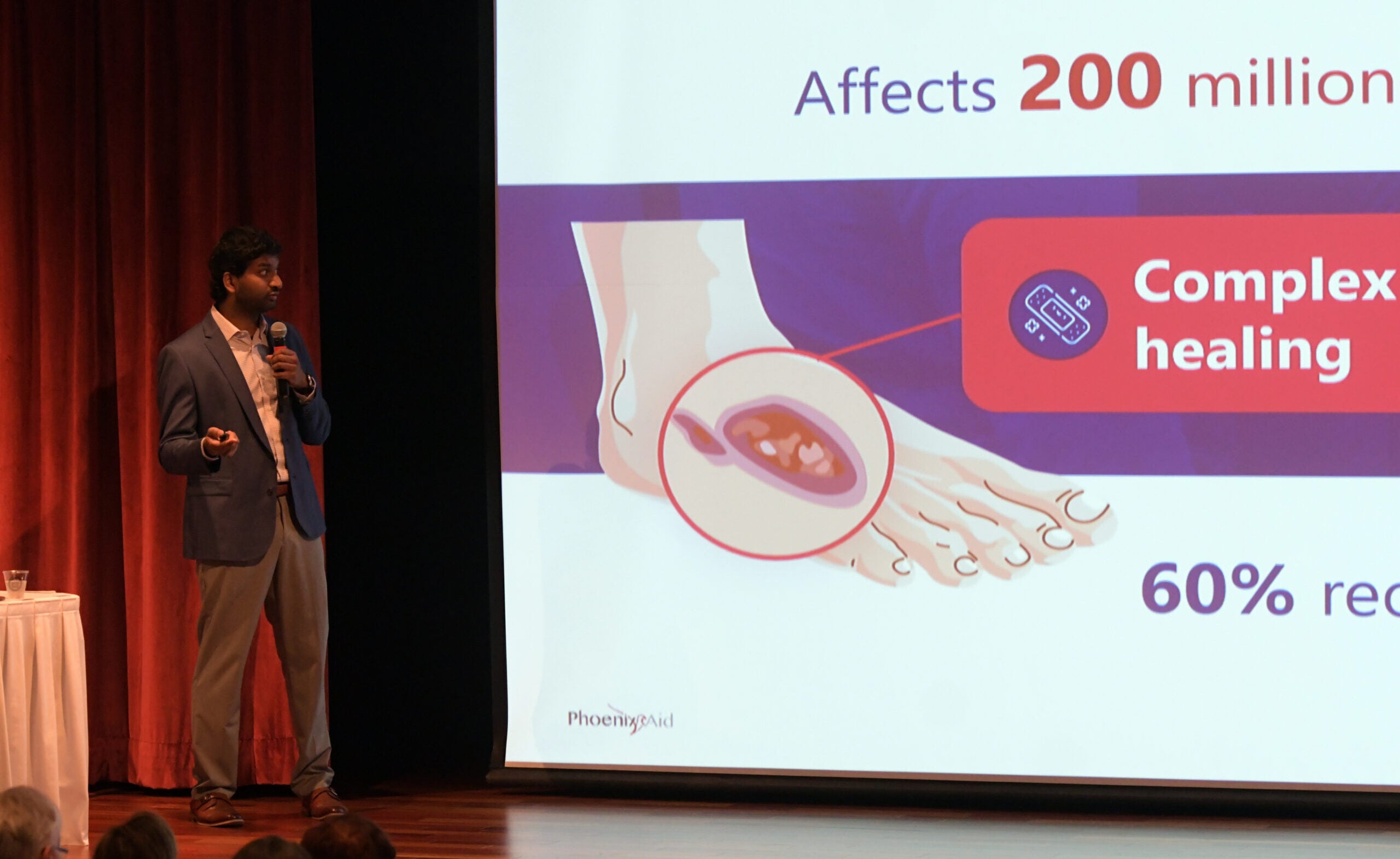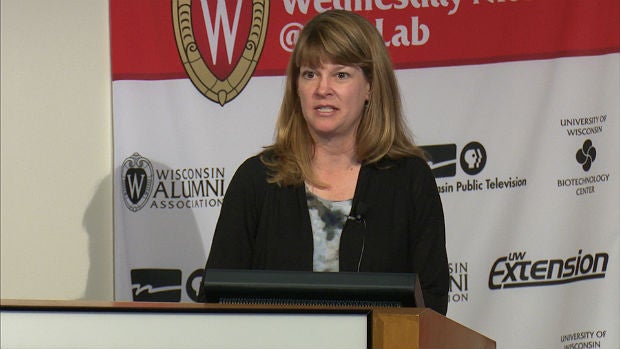A new kind of bandage, a clothing service for all and a new use for dairy byproducts are among the winners of the Wisconsin Technology Council’s 2025 Wisconsin Governor’s Business Plan Contest.
Launched in 2004, the contest aims to highlight technology-related startups in Wisconsin. This year, there were more than 150 total applicants competing for the top spots in four categories — life sciences, information technology, business services, and advanced manufacturing.
Earlier this month, representatives from 13 of the most promising companies presented at the 2025 Wisconsin Entrepreneurs’ Conference in Madison, pitching their products to an audience of judges and peers — sort of like a Wisconsin version of the reality show “Shark Tank.”
News with a little more humanity
WPR’s “Wisconsin Today” newsletter keeps you connected to the state you love without feeling overwhelmed. No paywall. No agenda. No corporate filter.
Neenah-based life sciences start-up Phoenix-Aid took home the grand prize.
“Wisconsin Today” talked with some of the winners of the competition about their groundbreaking products and how they might affect Wisconsin and the world.
Phoenix-Aid is an innovative multi-layer bandage for chronic wounds
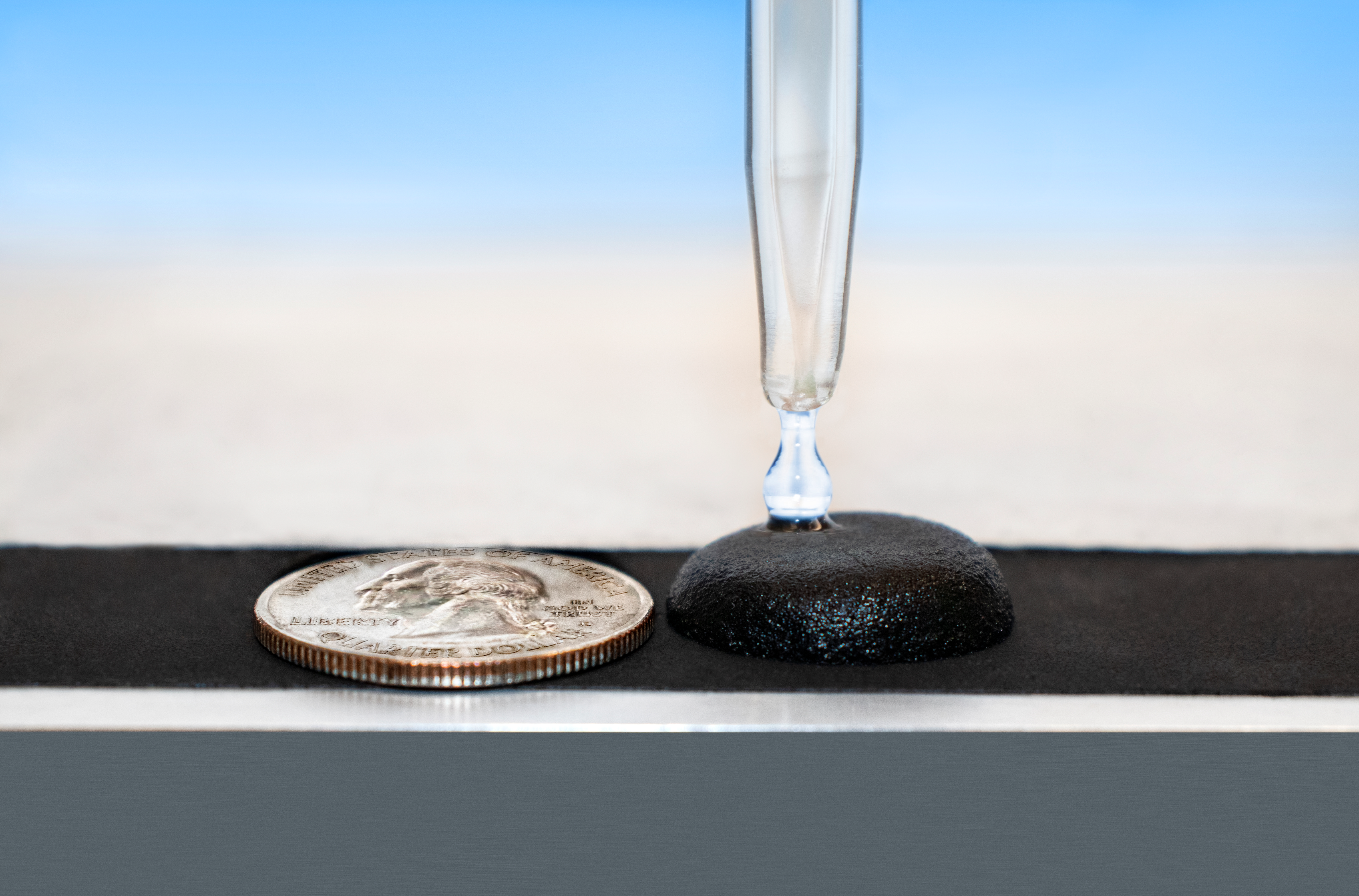
After Ashwinraj Karthikeyan’s grandmother passed away from a diabetic foot ulcer, he decided to find a better way to care for people with chronic wounds.
Diabetic foot ulcers are notoriously difficult to heal and prone to infection, and dressings require frequent maintenance. While there are special dressings designed for these types of wounds, many current options are not accessible for certain populations, like those in rural areas or in other countries.
“There’s a lot of really cool, advanced products out there, but [some people] don’t have access to those things, or they don’t have the trained medical professionals who know how to use them,” Karthikeyan said. “What we developed is a simplified solution.”
Karthikeyan created Phoenix-Aid: a multi-layer nano-composite carbon bandage patch specifically designed for populations who don’t have regular access to advanced medical care.
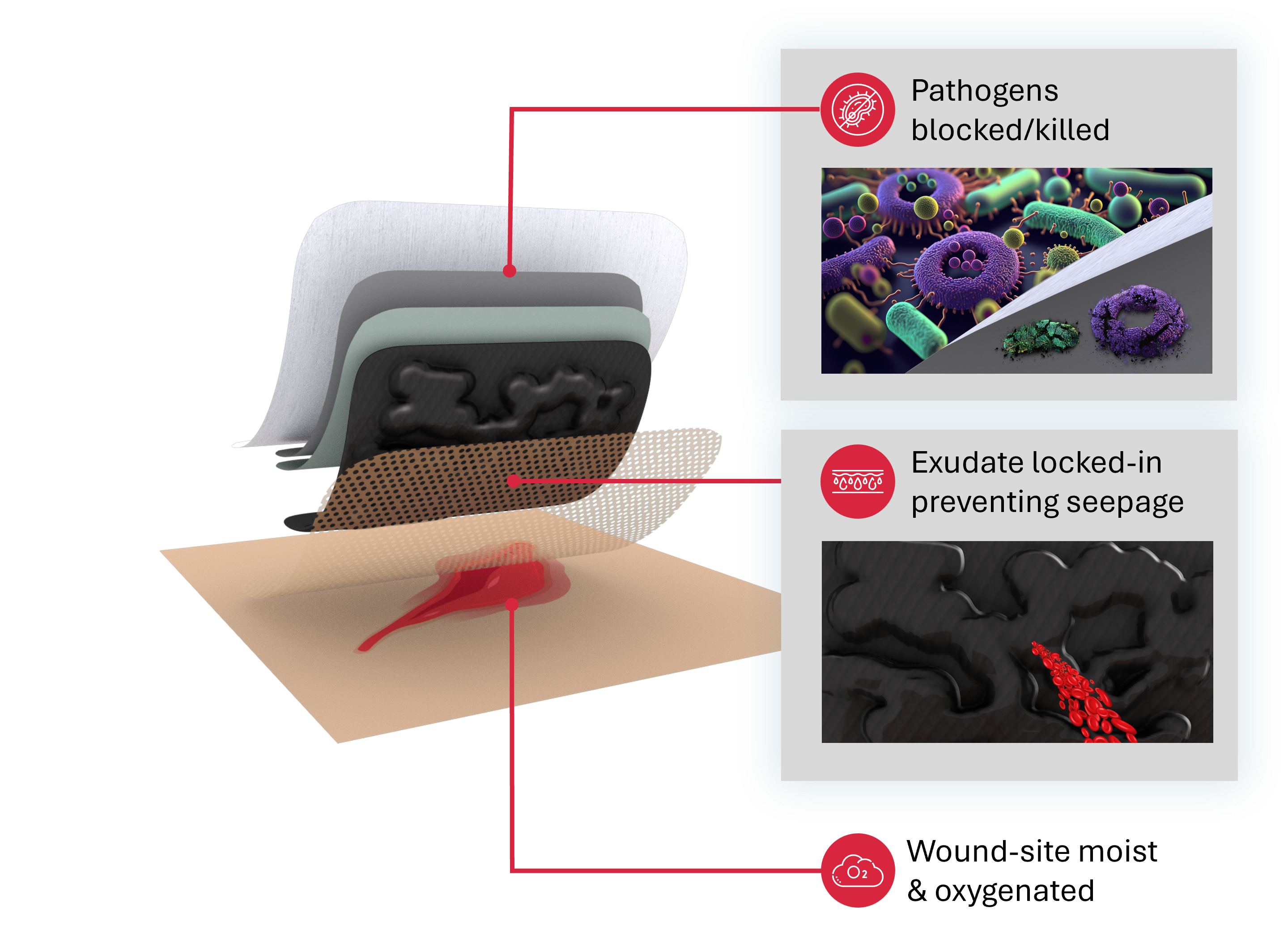
The patch’s five layers work together to accelerate healing and reduce infections, while it’s also more affordable and easier to use than most widely-used dressings designed for chronic wounds.
Karthikeyan aims to sell the product in India, where there is a large underserved population. But he plans to keep the company and its manufacturing here in Wisconsin.
Phoenix-Aid, based in Neenah, was the winner of the life sciences category and took home the grand prize at the Wisconsin Governor’s Business Plan Contest.
Equability gives people with disabilities more freedom over their wardrobe
In recent years, clothing companies have been coming out with options for people with disabilities. Tommy Hilfiger, for example, has a line of clothes with one-handed zippers, magnetic buttons and seams that open to accommodate prosthetics.
But Hilary Pham, founder and CEO of Equability in Madison, recognized these recent moves aren’t quite enough.
“When you compare them to the other options that they have that are not adaptive, it’s a fraction of the options,” Pham said.
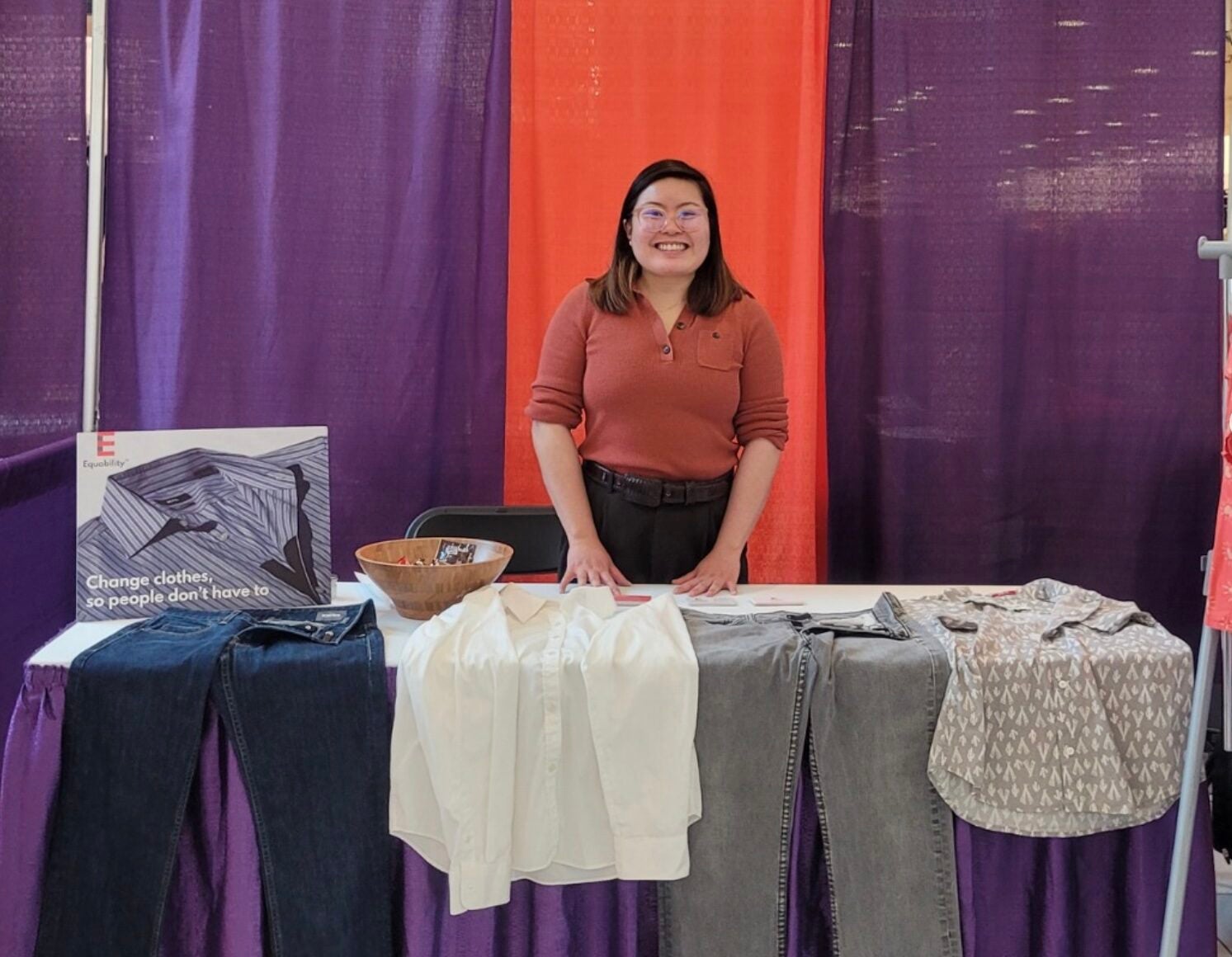
She created Equability, a service where clients mail in their existing clothes to be modified to fit their abilities. Often, that means replacing zippers and buttons with easier fasteners, such as velcro, snaps or magnets. But Hilary and her two sewers also work with individuals to create custom modifications.
Equability allows people with disabilities to save their favorite clothes, wear their favorite brands and even go thrifting.
“It’s for the people who want a little more freedom in the way that they dress,” Pham said.
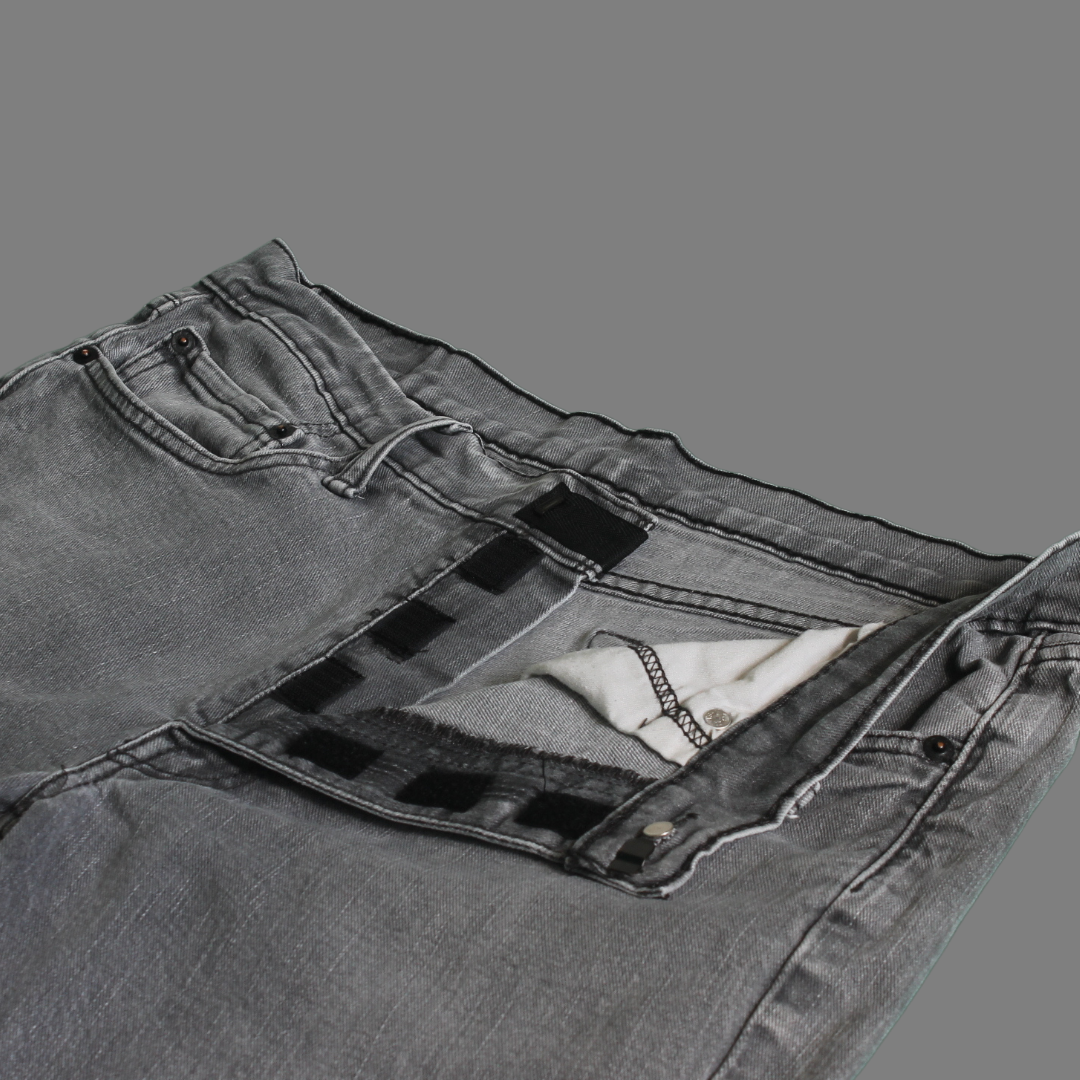

Clothing adapted by Equability to use velcro instead of zippers and buttons. Photo courtesy Equability
In the future, Pham is hoping to create drop-off points so clothes can be shipped in bulk. She hopes to eventually collaborate with major clothing brands.
“My biggest dream is to partner with clothing companies like [Duluth Trading Company] or Gap, where people can buy a brand new button-down shirt and then just have it sent directly to us,” Pham said. “They could shop from any retail store they want and then just get the clothes adapted to them.”
Equability was the winner of the business services category at the 2025 Wisconsin Governor’s Business Plan Contest.
Sea-Change Silicides improves outcomes for titanium implants
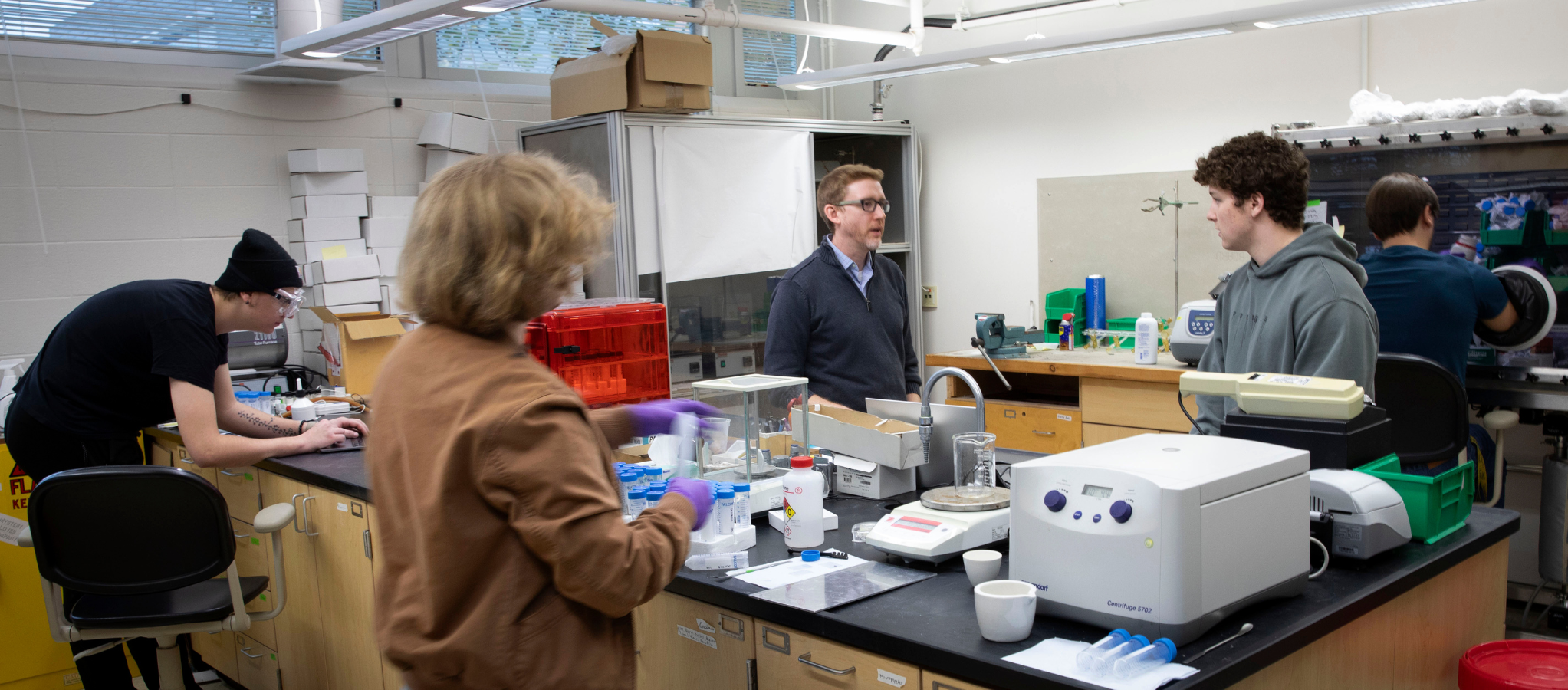
At the University of Wiscosnin-Whitewater, undergraduate students and their professor worked together to create a product that could revolutionize orthopedic implants.
Steven Girard is an associate professor of chemistry and the founder of Sea-Change Silicides. The brand-new start-up is working on a coating for titanium medical implants — for example, plates, pins and screws — to help them stay in place and resist infection.
The coating is made of bioactive glass, which consists of a mixture of silica glass and bone ions. In the body, the material releases ions that change the local pH in the vicinity of where the bioactive glass is, preventing the growth of bacteria. It also releases bone ions, which stimulates the regeneration of new living bone tissue.
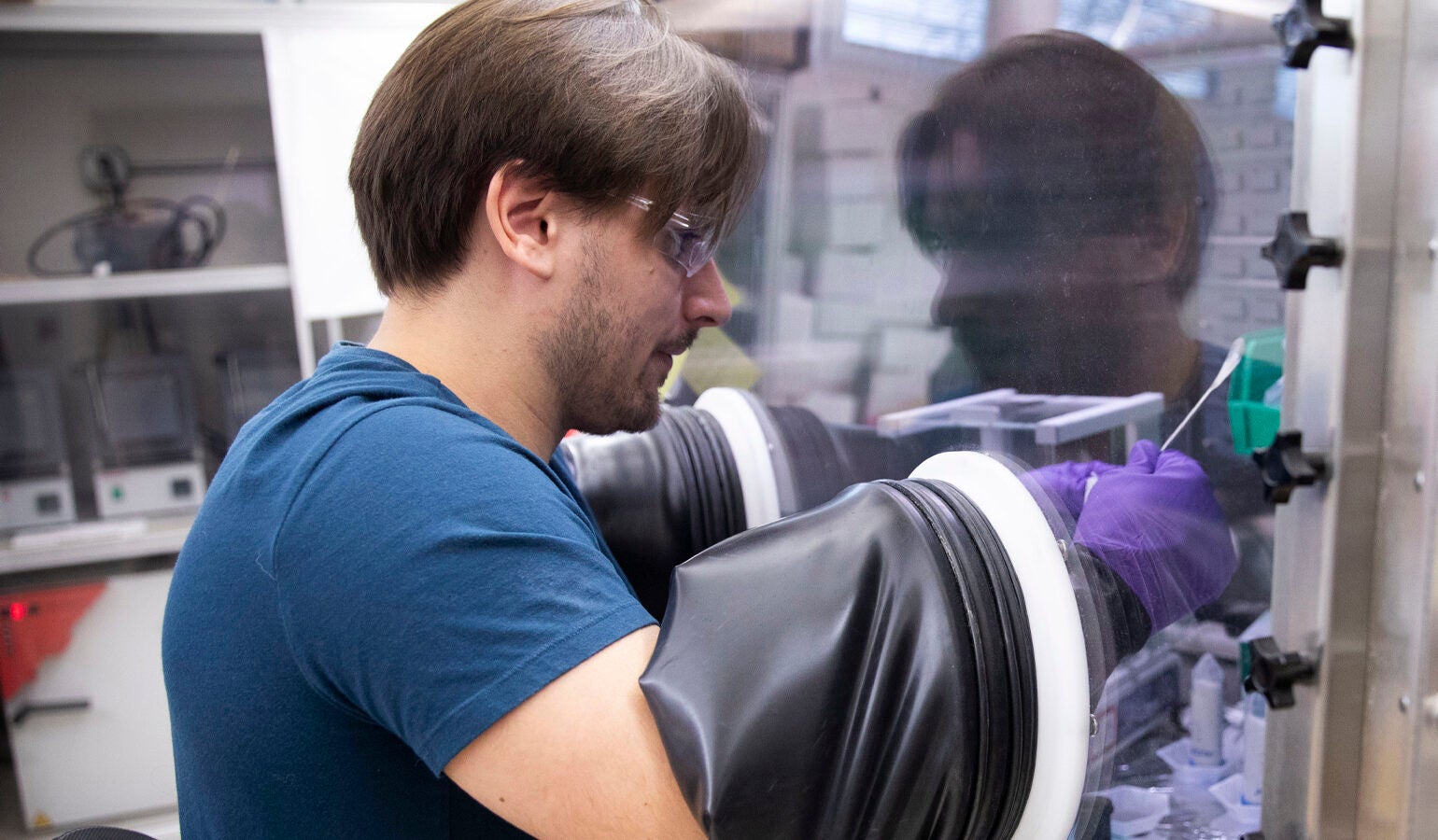
The product was made possible by Girard’s undergraduate researchers.
“We don’t have master’s or Ph.D. students,” Girard said. “We have only undergraduate researchers. So undergrads have been involved every step of the way, from the conception of the idea and to actually implementing it.”
Sea-Change Silicides is in its infancy. Girard began the process of commercializing in January.
“At this point, I’m sort of flying by the seat of my pants and learning as I go,” Girard said.
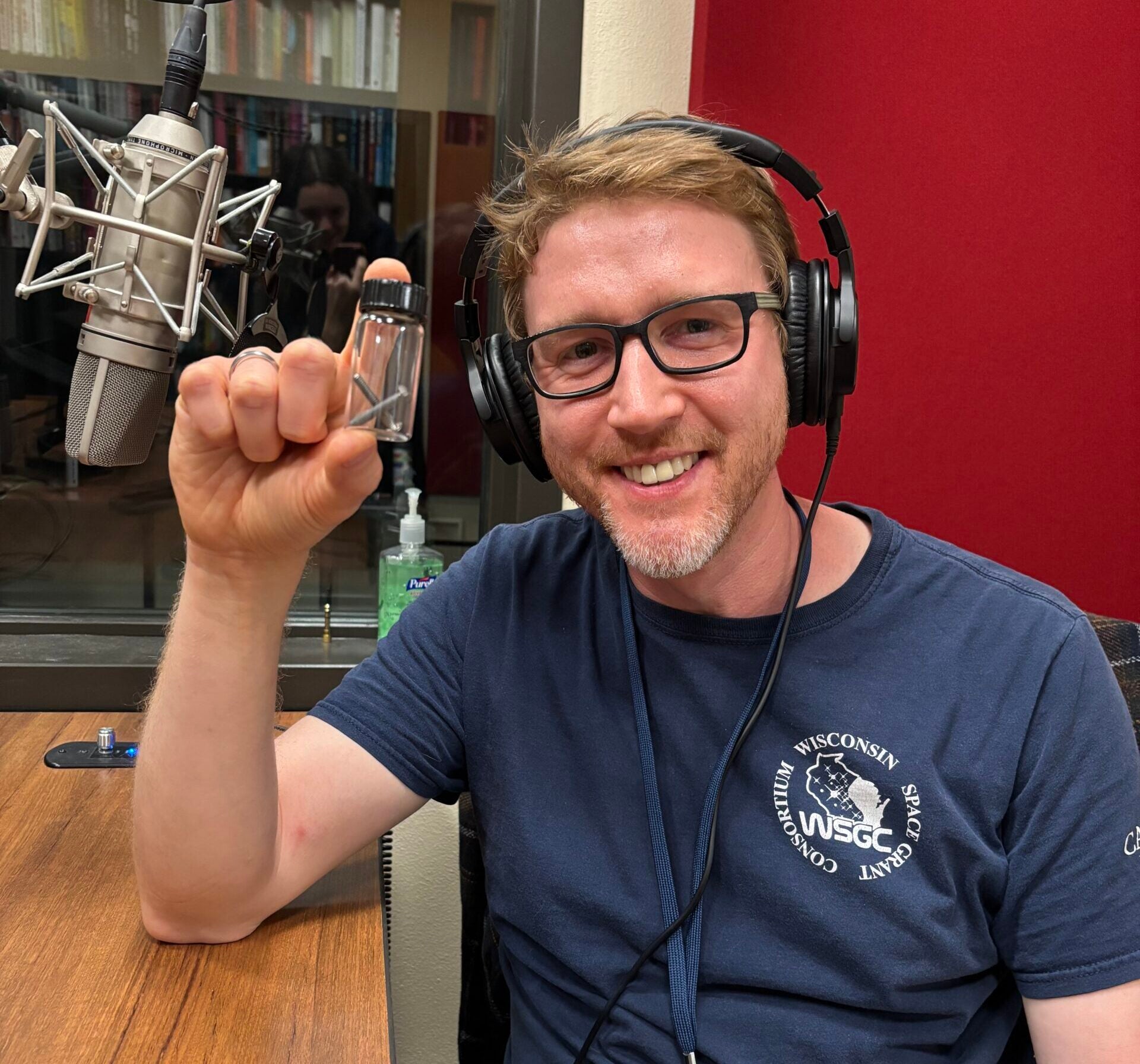
Until the company get approval from the U.S. Food and Drug Administration for use in humans, Girard plans to introduce the coating to the animal orthopedics market for pets who need titanium implants.
Sea-Change Silicides took home the Bright New Idea Award at this year’s competition.
Galasys turns dairy byproduct into a healthy sugar substitute
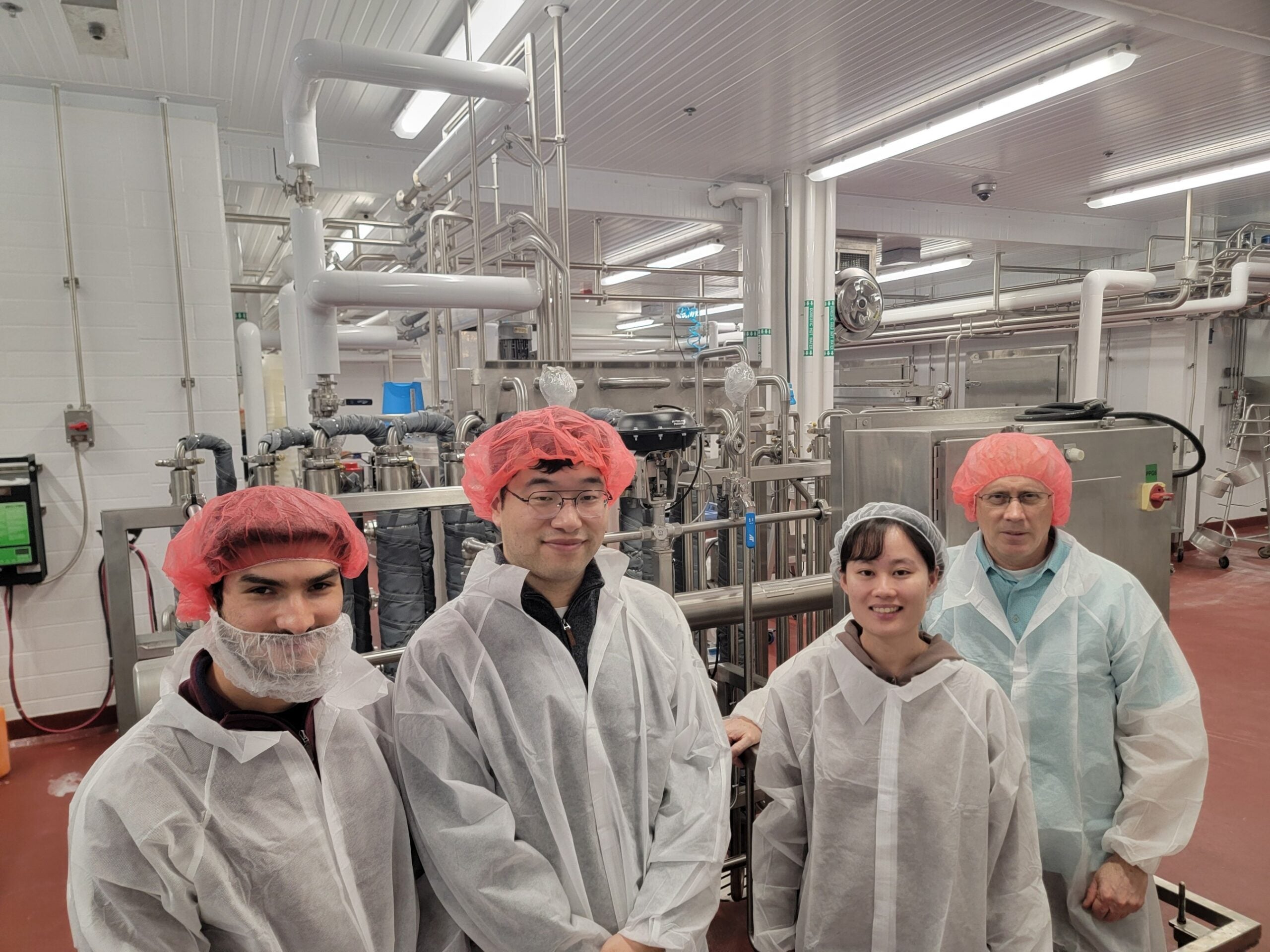
The winner of the advanced manufacturing category was Galasys, which designed a process that turns whey — a byproduct of cheese or yogurt production — into a low-calorie sweetener with properties similar to traditional table sugar.
Galasys co-founder Jarryd Featherman says much of the whey produced during dairy processes is disposed of unsustainably.
“There’s been a big drive to find a better way to dispose of it,” Featherman said. “What we’re trying to do here is get this technology in the hands of these dairy producers to be able to reduce their waste by about 90 percent and be able to turn the underutilized lactose portion of this waste stream into … something that can generate a new revenue stream.”
The substitute Galasys creates is called tagatose. It has 63 percent fewer calories than sugar and a 95 percent lower glycemic index, according to Featherman. It also has prebiotic properties. At the same time, it has a very similar taste and many of the same properties as sugar and can be used in a wide variety of food applications, including baking.
Currently, Galasys plans to sell the technology to dairy producers, who will in turn sell tagatose to manufacturers of high-sugar foods like confections, baked goods and ice cream.
Strudel AI brings Silicon Valley ideas to the Dairy State
Madison-based Strudel AI automates technical customer support for software companies. It won in the competition’s information technology category.
Strudel is a proprietary AI that can solve complex technical problems where engineers would usually have to intervene, freeing up more time for innovation. Strudel can resolve problems 65 percent faster with a 20 percent reduction in engineering time spent on support, according to CEO Kristin Isaac.
Despite seeming like it would be at home in Silicon Valley, Isaac says Strudel plans to stay in Wisconsin.
“I believe we’ve got a lot of fantastic talent here in Wisconsin,” Isaac said. “I’m actively looking to work with [UW-Madison] to hire recent grads. I’m even considering hiring students part-time for some go-to-market roles and possibly even engineering roles.”

